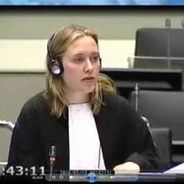‘Brexit’ - What Does it Mean for Extradition Law?
Introduction
Significant changes are afoot in extradition law.
As a result of Brexit, the UK left the European Arrest Warrant (EAW) on 31 December 2020. The trade deal, struck at the eleventh hour on Christmas Eve, means that from 1st January 2021 the “Arrest Warrant” (AW) replaces the EAW as the mechanism for extradition between the UK and the EU member states.
This new webinar will take the participants through the new extradition arrangements contained in the EU-UK Trade and Cooperation Agreement (TCA) as well as the implementing legislation and the transitional provisions. It will consider which legislation and case law will continue to apply in AW cases. It will enable you to advise and represent your extradition clients with confidence as a different legal landscape unfolds.
Find out:
- What new legislation will apply from 1 January 2021 and how the new law will alter extradition proceedings?
- What will happen if your client was arrested on an EAW before 31 December 2020, but proceedings are yet to conclude?
- What if there is an extant EAW before 31 December 2020 but your client isn’t arrested until 2021?
- What will be the impact in practice of the new extradition arrangements?
What You Will Learn
This webinar will cover the following:
- The newly applicable law after the UK leaves the EAW on 31 December 2020
- The extradition arrangements contained in the EU-UK Trade and Cooperation Agreement (TCA) 2020
- The extradition provisions in the European Union (Future Relationship) Act 2020
- Important amendments to the Extradition Act 2003 made by the Law Enforcement and Security (Amendment) (EU Exit) Regulations 2019
- The impact leaving the EAW is likely to have on import and export extradition proceedings in 2021 and beyond
This webinar was recorded on 20th January 2021
You can gain access to this webinar and 1,700+ others via the MBL Webinar Subscription. Please email webinarsubscription@mblseminars.com for more details.











